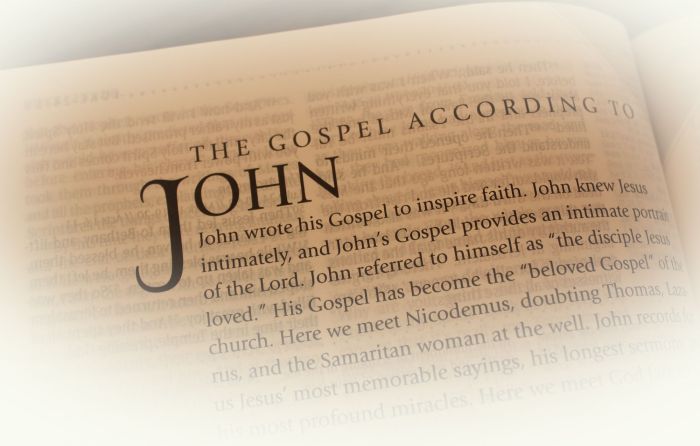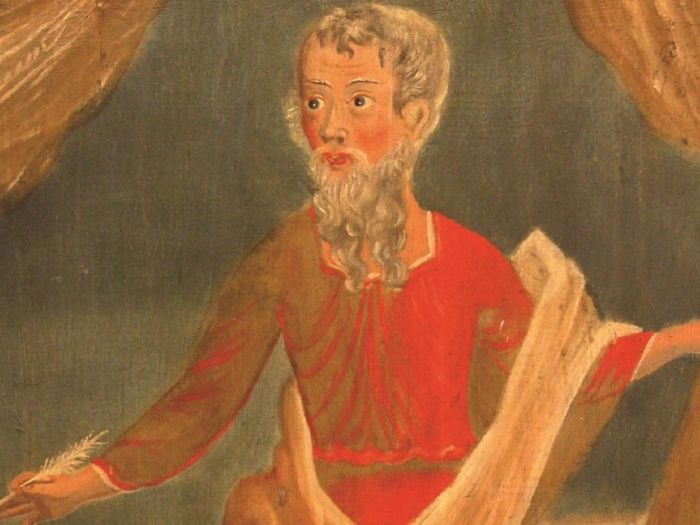Quien escribio el evangelio de juan – The authorship of the Gospel of John has sparked scholarly debate for centuries, inviting us on an intriguing journey to uncover the enigmatic figure behind this profound text. This comprehensive exploration delves into the historical, linguistic, and theological evidence surrounding the Gospel’s composition, shedding light on the identity of its enigmatic author.
Throughout history, the Gospel of John has been traditionally attributed to John the Evangelist, one of Jesus’s twelve apostles. However, alternative theories have emerged, challenging this long-held belief. Our investigation will examine these competing perspectives, weighing the merits of each argument to arrive at a well-rounded understanding of the Gospel’s authorship.
Author Identification

The authorship of the Gospel of John has been a subject of debate and scholarly inquiry for centuries. Traditionally, the Gospel has been attributed to John the Evangelist, one of the twelve apostles of Jesus. However, alternative theories have emerged, challenging this traditional view.
Traditional Attribution to John the Evangelist
The earliest Christian writings, such as the writings of Irenaeus and Clement of Alexandria, consistently attribute the Gospel of John to John the Evangelist. This attribution is based on the Gospel’s internal evidence, such as the author’s close relationship with Jesus and his eyewitness account of events.
Alternative Theories, Quien escribio el evangelio de juan
In the 19th century, scholars began to question the traditional attribution to John the Evangelist. Some theories suggest that the Gospel was written by a group of disciples known as the Johannine community, while others propose that it was written by a single author who was not an eyewitness to the events described in the Gospel.
Internal Evidence
An analysis of the Gospel of John’s language and style provides insights into the author’s identity. The Gospel is characterized by a unique vocabulary and syntax, which distinguishes it from the other New Testament Gospels. The author also employs a distinctive use of symbolism and allegory, suggesting a high level of literary skill.
Author’s Perspective and Theological Emphasis
The Gospel of John presents a unique perspective on the life and teachings of Jesus. The author emphasizes Jesus’ divine nature and his relationship with the Father. The Gospel also contains a strong emphasis on love, faith, and eternal life, reflecting the author’s theological beliefs.
External Evidence: Quien Escribio El Evangelio De Juan
Early Christian writings and traditions provide valuable external evidence regarding the authorship of the Gospel of John. The Muratorian Fragment, a 2nd-century document, mentions the Gospel of John and attributes it to John the Apostle.
Writings of the Church Fathers
The writings of the Church Fathers, such as Irenaeus, Clement of Alexandria, and Origen, consistently attribute the Gospel of John to John the Evangelist. These early Christian leaders were familiar with the traditions and writings of the early Church, and their testimony provides strong support for the traditional view of authorship.
Comparative Analysis

A comparison of the Gospel of John to the other New Testament Gospels reveals both similarities and differences in style, content, and theological themes. The Gospel of John shares a similar narrative structure with the Synoptic Gospels (Matthew, Mark, and Luke), but it also contains unique material and a distinctive theological perspective.
Potential Insights into Author’s Identity
The comparative analysis suggests that the author of the Gospel of John was likely familiar with the Synoptic Gospels but also had access to additional sources and traditions. This knowledge and perspective may indicate that the author was a member of the early Christian community who had a close relationship with Jesus or his disciples.
Contextual Factors

The Gospel of John was written in the late 1st century CE, during a period of significant social and religious change in the Roman Empire. The early Christian community was facing persecution and division, and the Gospel of John reflects the challenges and beliefs of this community.
Influence of Early Christian Community
The Gospel of John was likely shaped by the beliefs and practices of the early Christian community. The author’s emphasis on love, faith, and eternal life reflects the community’s need for hope and reassurance in the face of adversity.
Impact of Other Religious and Philosophical Ideas
The Gospel of John also shows the influence of other religious and philosophical ideas prevalent in the 1st century CE. The author’s use of symbolism and allegory, as well as his emphasis on the divine nature of Jesus, suggests that he was familiar with both Jewish and Hellenistic thought.
FAQ Overview
Who is the traditional author attributed to the Gospel of John?
John the Evangelist, one of Jesus’s twelve apostles
What are some alternative theories regarding the Gospel’s authorship?
Theories suggest the author was a member of the Johannine community, a group of Jesus’s followers associated with John the Baptist
What is the significance of the Gospel of John’s authorship?
The author’s identity influences the interpretation and understanding of the Gospel’s message and theological themes